Submitted by WA Contents
MVRDV redesigns Albania's Pyramid Of Tirana as a monumental "open sculpture"
Albania Architecture News - Oct 23, 2023 - 15:40 2145 views
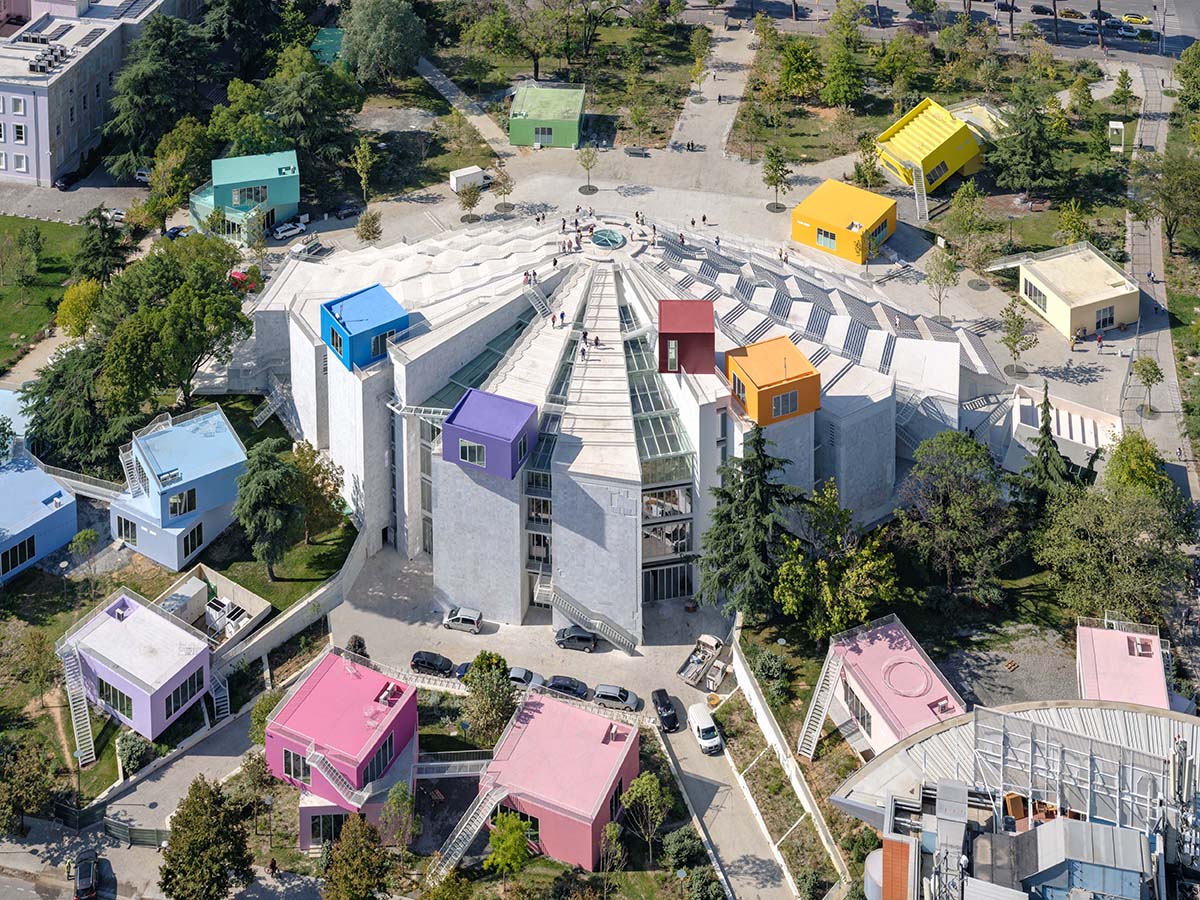
MVRDV has redesigned a former museum, dedicated to the communist dictator Enver Hoxha, as a monumental "open sculpture" in a new park in Tirana, Albania.
Named The Pyramid of Tirana, the project, envisioned as a new kind of cultural hub, is now open and accessible to the public in the heart of Albania’s capital city.
The 11,835-square-metre building accommodates educational facility, commercial spaces and a public space. While the pyramid's centre reaches at 20.2 meters, the maximum heigth of the pyramid is 24.5 meters.
Tirana-based architecture firm iRI Architecture served as co-architect of the project.

Originally built in 1988 as a museum dedicated to the communist dictator Enver Hoxha, MVRDV has been commissioned to transform the former historic structure into a new cultural hub.
The design team has reused the original concrete structure of the Pyramid, but made some alterations.
The park and the sculpture are now home to an ensemble of colourful boxes, scattered in and around the original building that now house cafés, studios, workshops, start-up offices, incubators, festivals, and classrooms where Albanian youth will learn various technology subjects for free.
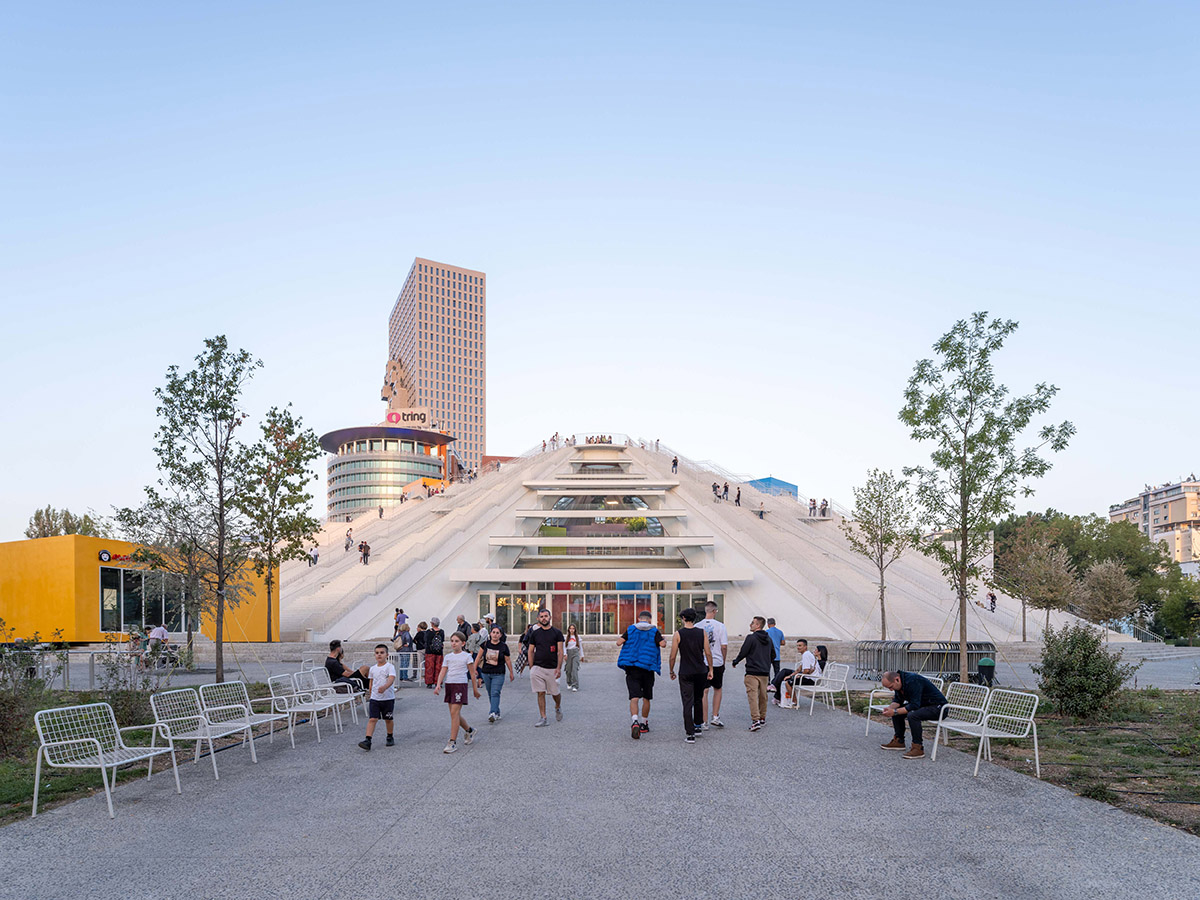
The firm has added numerous steps to the building’s sloping façades, allowing "the people of Albania to literally walk all over the showpiece of the former dictator."
Until recently, the pyramid was used as a building site, it was already heavily in use the past summer. Besides Albanians enjoying the city views, the Pyramid was also discovered by tourists as a hidden gem.

"With an EU Summit and the official inauguration of the building as a free educational faculty for Albanian teens by TUMO on October 16th, the Pyramid is now officially giving back to the people," stated MVRDV.
"First opened as a museum in 1988, the Pyramid of Tirana has led numerous lives. Since the fall of the communist regime, the building was variously used as a radio station, a nightclub, a conference venue, a broadcast centre and, during the 1999 Kosovo War, a base for NATO."
"The ever-changing uses, along with incomplete previous renovation plans, left behind a patchwork of alterations that made the interior cluttered and dark," the firm added.

"In recent decades, the question of what to do with the building proved highly controversial," according to MVRDV.
"A study published in 2015, however, showed that the majority of Albanians were opposed to demolishing the building, and in 2017 this desire was honoured when the government announced plans to transform the concrete monolith."

This promise was carried out with the help of the Albanian-American Development Foundation (AADF) and the Municipality of Tirana, with the decision made to turn the building into a nurturing environment for young Albanians.
The firm believes that "for many Albanians the Pyramid is a symbol of victory over the regime", and this inspired the firm to create a project "in a way that they had reclaimed the building."
After the passing of the dictator, the deteriorating structure had long served as a hangout spot for Tirana’s youth, who would climb the sloping beams and – not without risk – slide back down.

In the recently-designed structure, its steps rise up the sloping sides, allowing people of all ages to climb to the top of the building.
On the western side, a lift gives access to the top of the Pyramid for those who can’t climb the steps, while one beam incorporates a sloped section where people can still slide to the bottom.
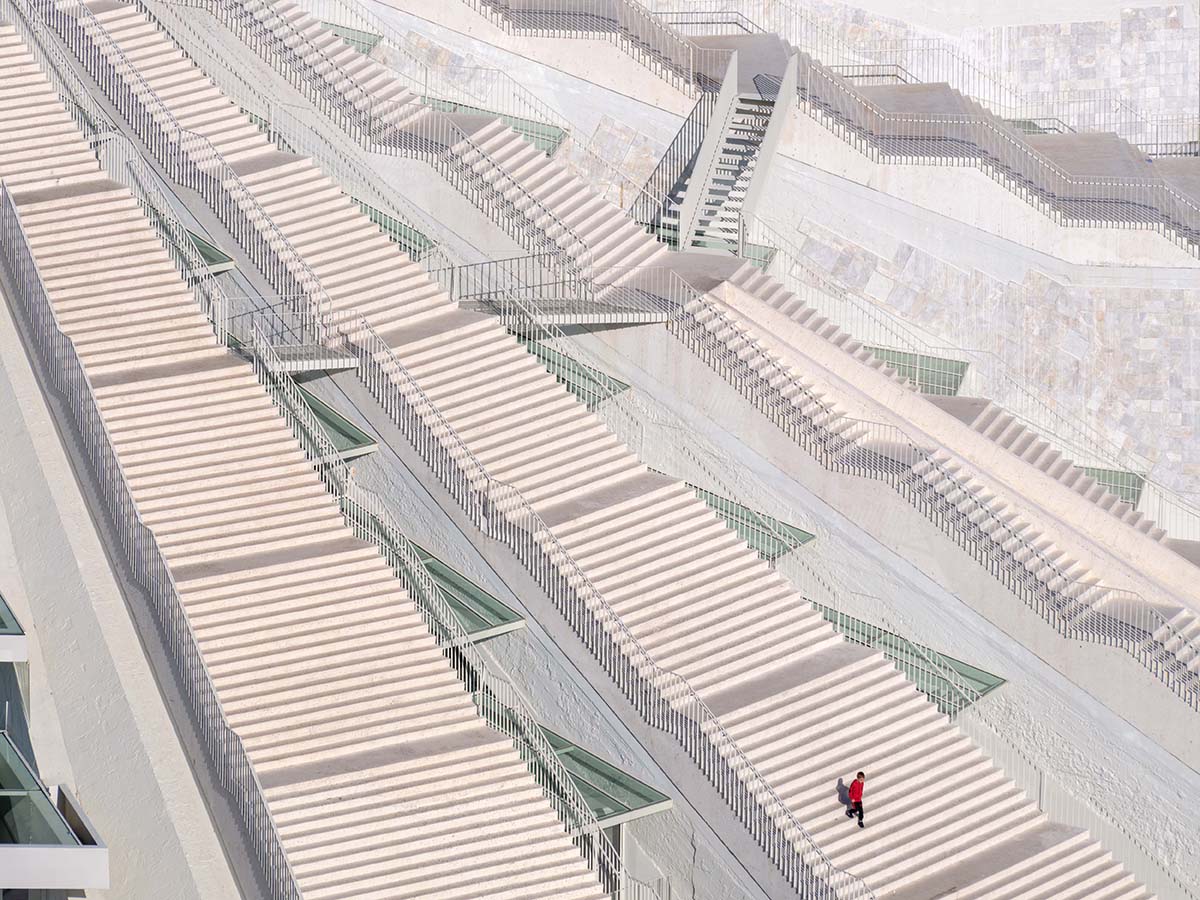
"The first time I saw the Pyramid being walked all over by the youth of Tirana, I was deeply touched by its symbolism and by its incredible optimism," said MVRDV founding partner Winy Maas.
"Keeping in mind this was the most expensive building the communist state had ever realised in a time when the oppressed Albanian population was living in poverty, we removed all symbols glorifying the dictatorship in our transformation. We did keep some of the original details so visitors are also aware of the building’s dark past."
"The structure is completely open as a ruin in the park, and all these boxes are ‘squatting’ in and around the structure," he continued.
"Once sardonically called the ‘Enver Hoxha Mausoleum’, the transformed Pyramid has now become a monument for the people and their ability to overcome and outlive dictators," Maas added.

MVRDV’s new design scheme encompasses and encircles the existing structure, using the structure as a blueprint to which publicly accessible spaces and boxes for education and events were added.
The pyramid also features a stack of coloured boxes containing rooms for education and events are scattered in and around the structure and the park.

While these colourful additions are found on top of the structure, and in the park they are placed at the front of the building, giving the surroundings the atmosphere of a festival and even a “squatted” area.
Around half of these spaces are dedicated to classrooms for a non-profit educational institution TUMO Tirana, which provides free afterschool education for 12- to 18-year-olds in new techniques such as software, robotics, animation, music, and film.

Founded in Armenia in 2011 and since then spreading throughout Europe, TUMO helps to provide education and opportunities that can be a tool against the “brain drain” that threatens the economy of countries like Albania.
The other half of the coloured boxes will be accessible to the public, hosting rental spaces for cafés, restaurants, start-up offices and labs, incubators, studio spaces, and more.

MVRDV stated that "the transformation of the Pyramid shows how a building can be made suitable for a new era, while at the same time preserving its complex history, and demonstrates that historic brutalist buildings are ideal for reuse."
"The project also meets a number of the Sustainable Development Goals outlined by the United Nations."
The design team developed a robust concrete shell - adapted along circular economy principles - rather than wastefully demolish the building.

As the majority of the structure is open to the surroundings for most of the year, only the added boxes housing the educational program need to be climate-controlled, reducing energy consumption.
Social sustainability is advanced in the building’s new use, with the educational programme advancing education and preparing the next generation for success.


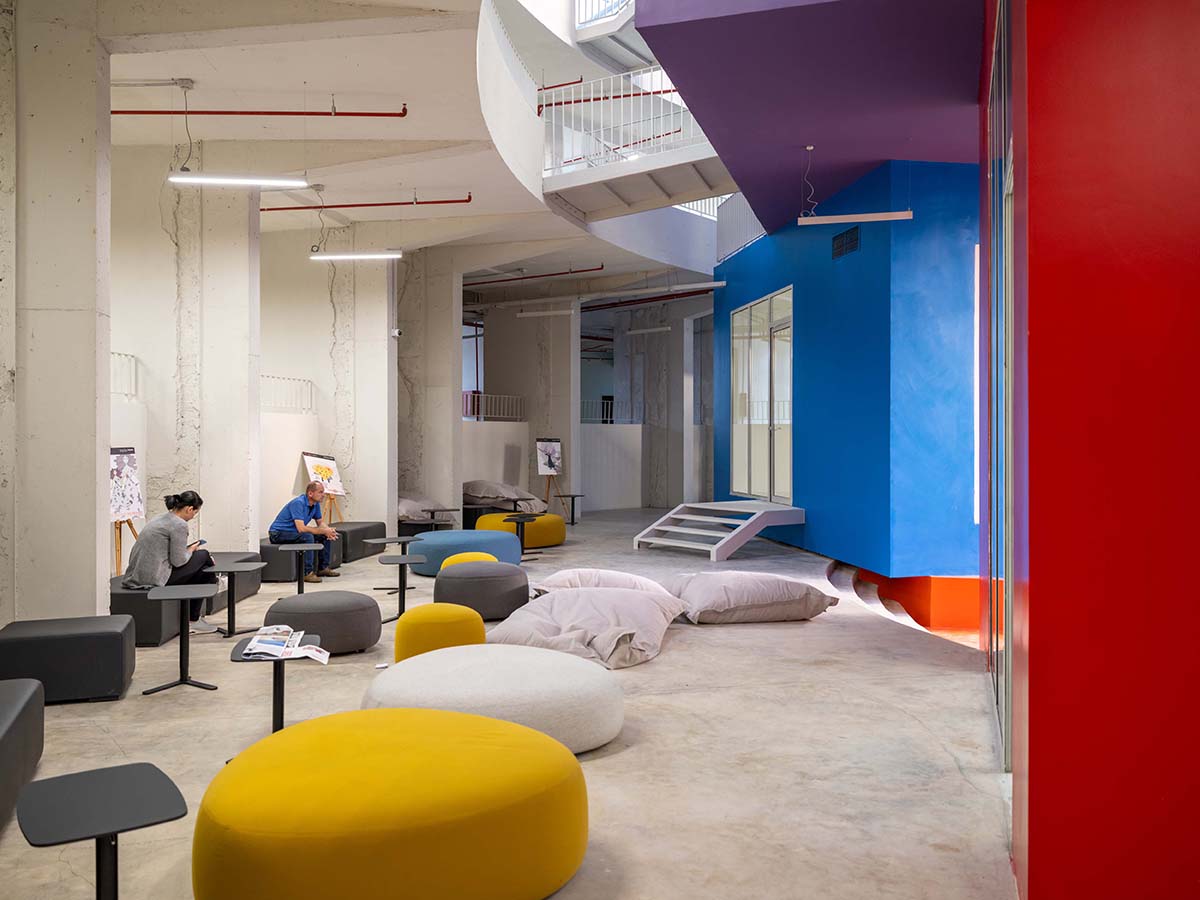










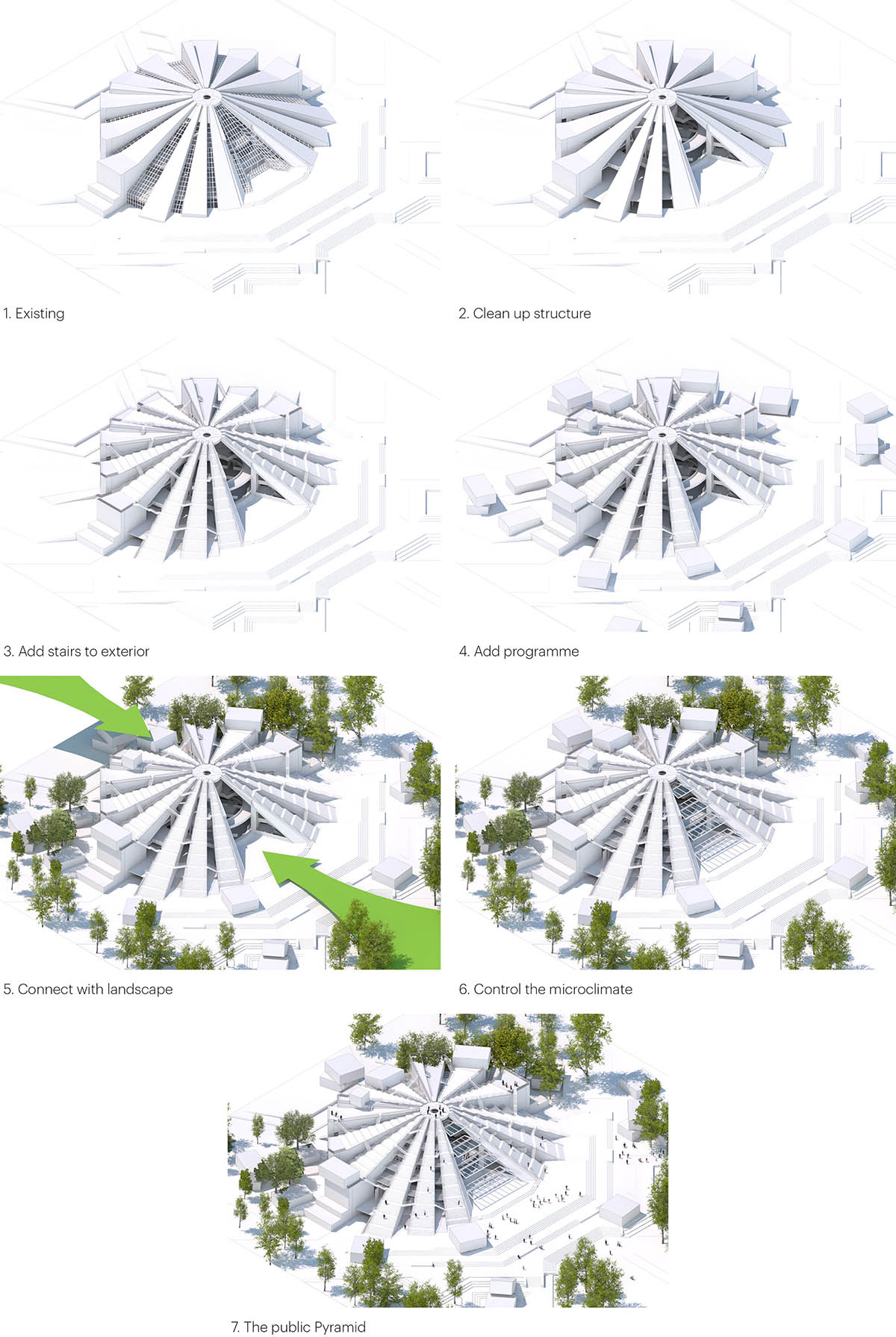
All steps


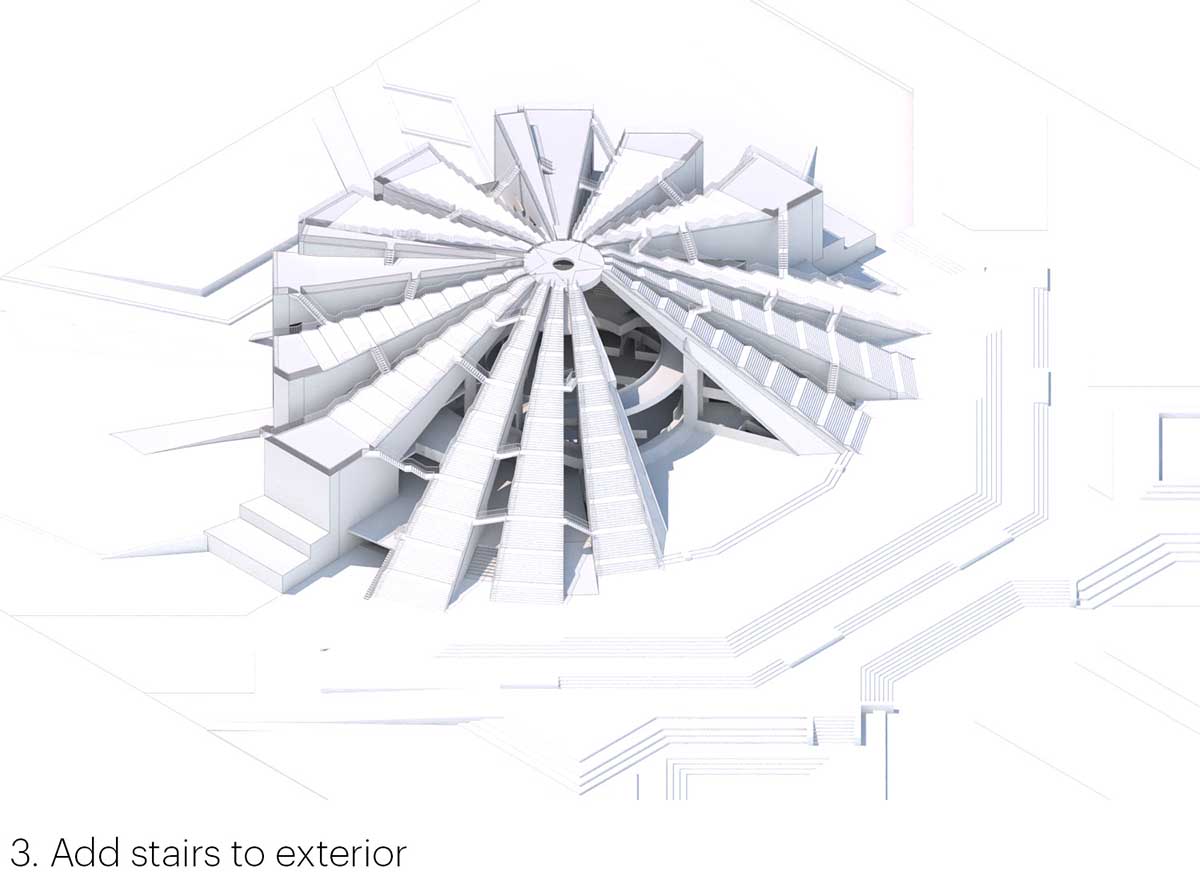

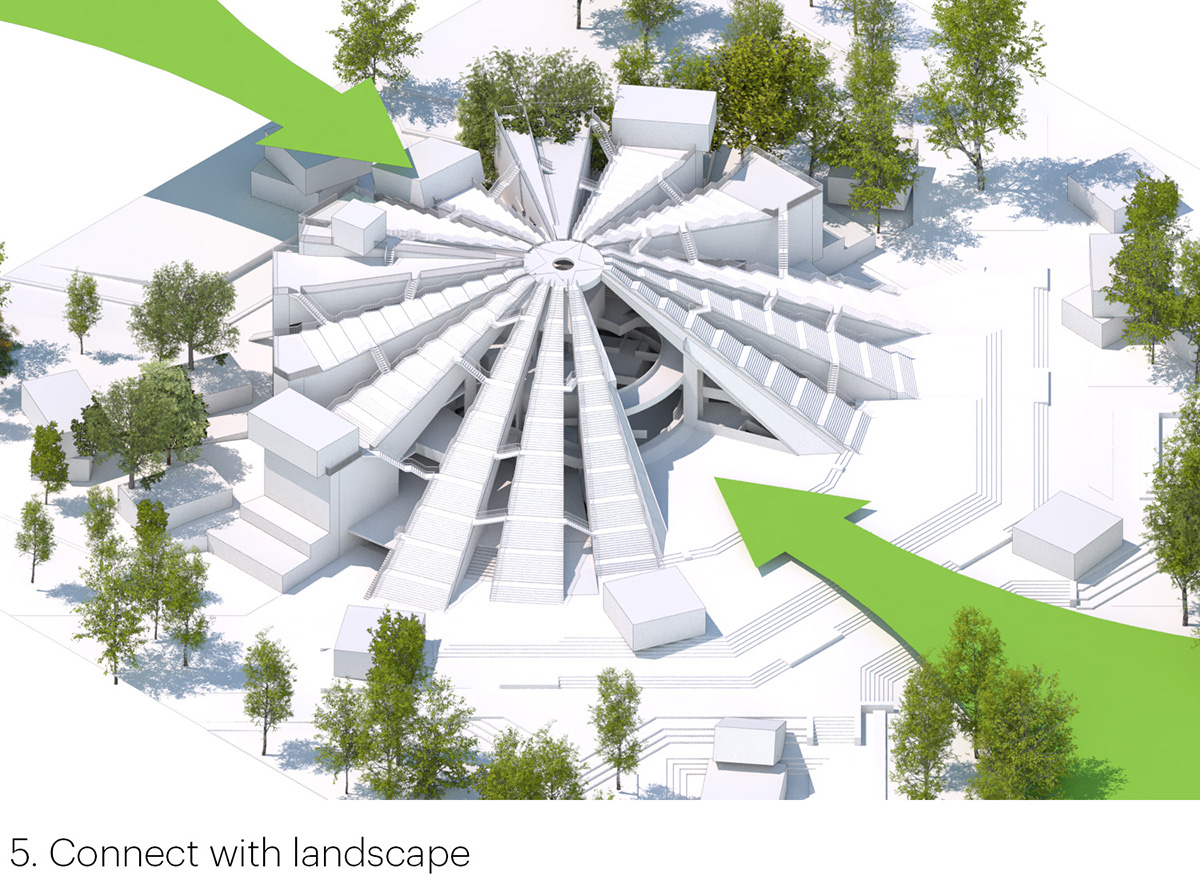
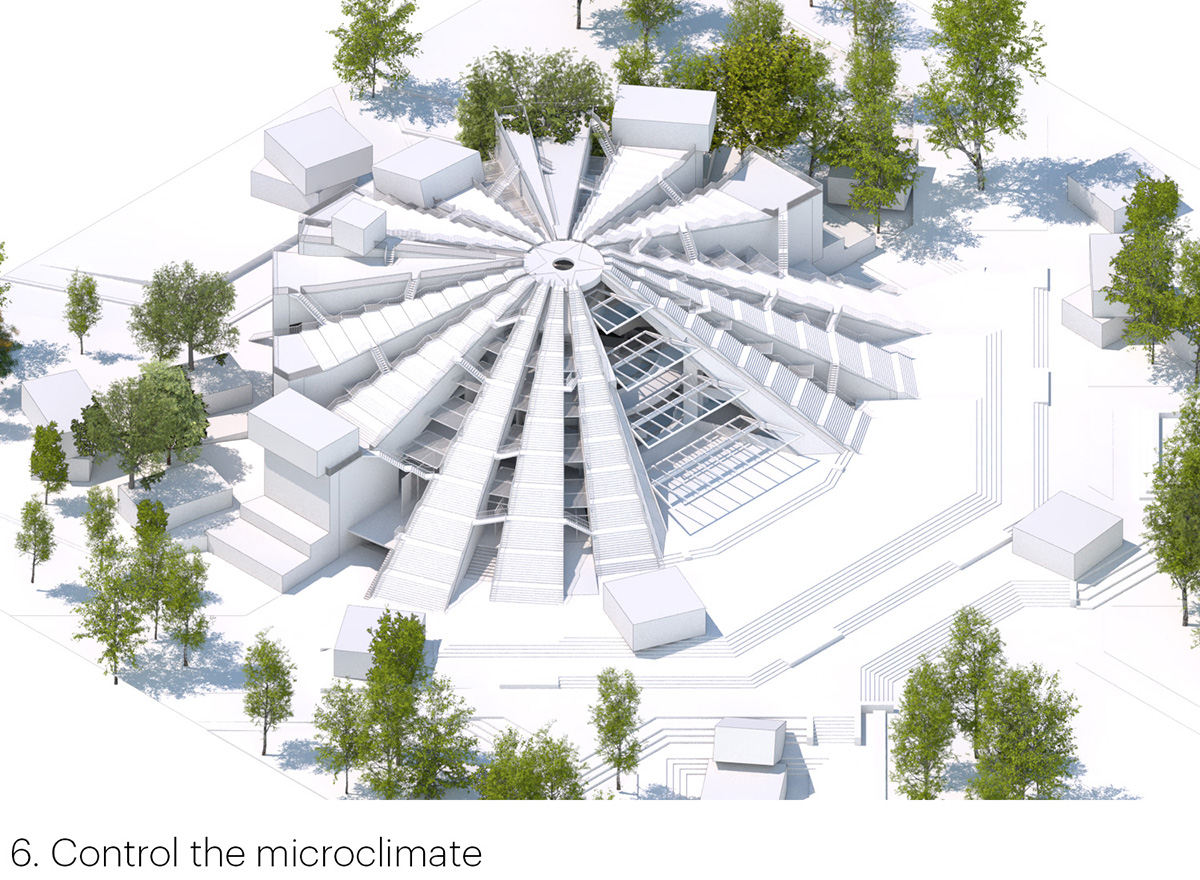

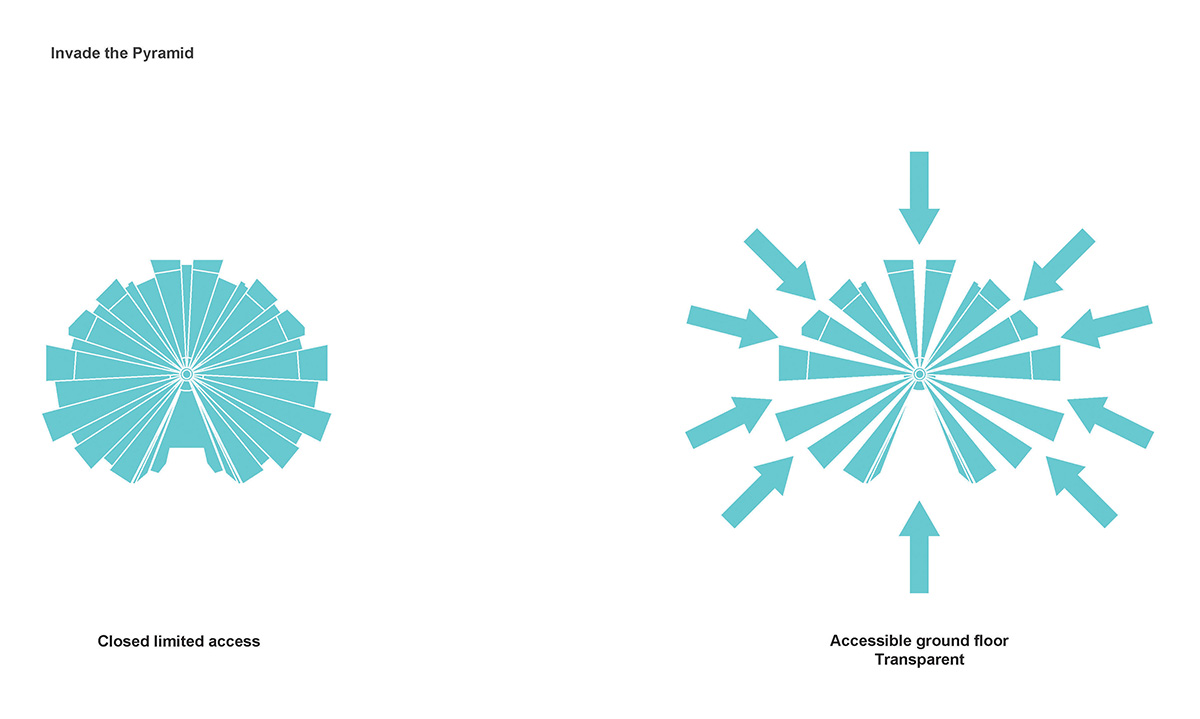
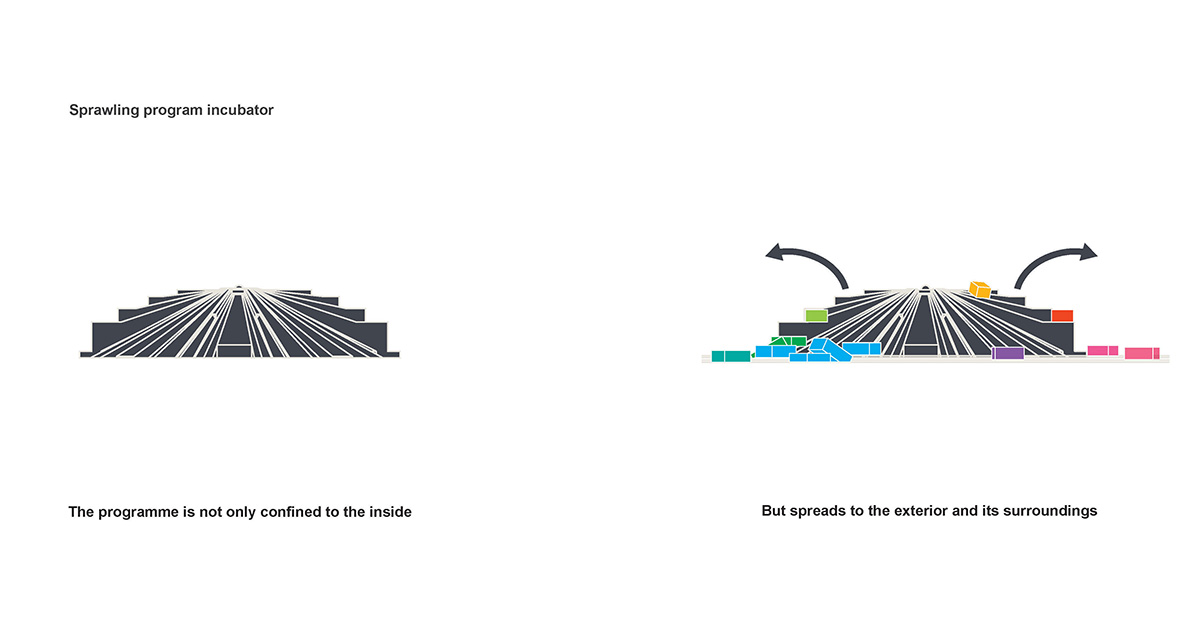

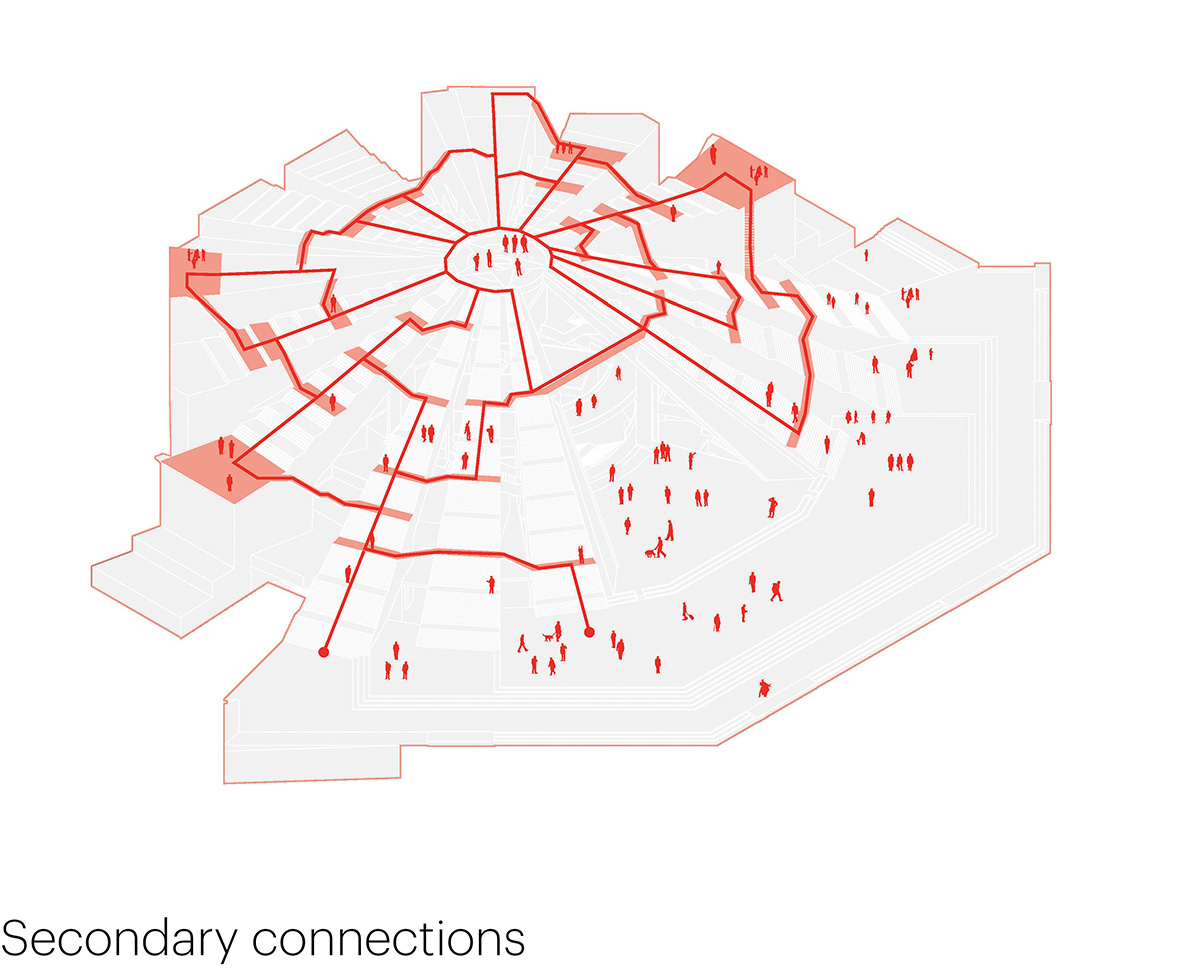
MVRDV has released conceptual plans to transform Albania's communist-era pyramid into a new cultural hub in 2018. In 2021, construction work began on MVRDV's Tirana Pyramid.
MVRDV is also designing a 85-metre-tall mixed-use tower - sculpted into the shape of a bust of Albania’s national hero. The new tower will be among "the world’s largest buildings that doubles as a figurative sculpture", according to MVRDV.
Architecture firm MVRDV was established in 1993 in Rotterdam, The Netherlands by Winy Maas, Jacob van Rijs and Nathalie de Vries.
The firm has four offices in Shanghai, Paris, Berlin, and New York and engages globally in providing solutions to contemporary architectural and urban issues.
Project facts
Project name: The Pyramid of Tirana
Location: Tirana, Albania
Year: 2018-2023
Client: Albanian-American Development Foundation (AADF)
Architect: MVRDV
Founding Partner in charge: Winy Maas
Partner: Stefan de Koning
Design Team: Ronald Hoogeveen, Stavros Gargaretas, Guido Boeters, Angel Sanchez Navarro, Boris Tikvarski, Jasper van der Ven, Mirco Facchinelli, Manuel Magnaguagno, Leo Stuckardt
Visualisations: Antonio Luca Coco, Luca Piattelli, Jaroslaw Jeda, Luana La Martina, Gianlorenzo Petrini
Strategy and Development: Willeke Vester, Daan van Gool
Partners
Albanian-American Development Foundation (AADF), Municipality of Tirana; Albania Ministry of Culture
Education partner: TUMO Tirana
Co-architect: iRI Architecture
Contractor: Fusha shpk
Project coordination: Albanian-American Development Foundation (AADF)
Landscape architect: iRI; JESHILE; MVRDV
Structural engineer: ARUP; Gentian Lipe; Luan Murtaj
MEP: ARUP; iRI; Nikolin Risilia; Artur Dado; Isuf Kore
Monuments Expert: Daniel Gjoni
Cost calculation: iRI Architecture
Environmental advisor: Arben Liçi
All images © Ossip van Duivenbode.
All drawings © MVRDV.
> via MVRDV
